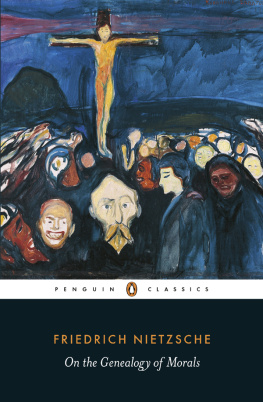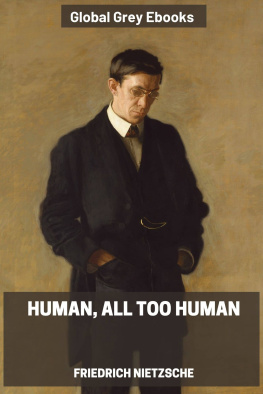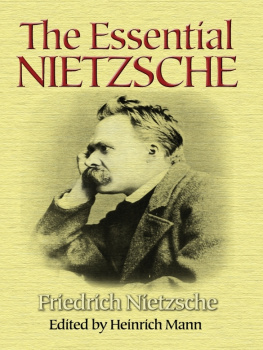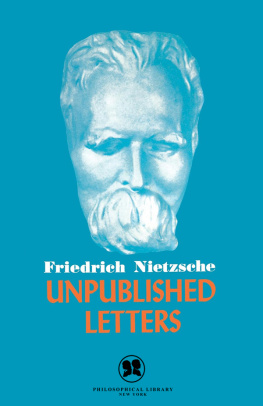PENGUIN CLASSICS
Published by the Penguin Group
Penguin Books Ltd, 80 Strand, London WC2R 0RL , England
Penguin Group (USA) Inc., 375 Hudson Street, New York, New York 10014, USA
Penguin Group (Canada), 90 Eglinton Avenue East, Suite 700, Toronto, Ontario, Canada M4P 2Y3 (a division of Pearson Penguin Canada Inc.)
Penguin Ireland, 25 St Stephens Green, Dublin 2, Ireland (a division of Penguin Books Ltd)
Penguin Group (Australia), 707 Collins Street, Melbourne, Victoria 3008, Australia (a division of Pearson Australia Group Pty Ltd)
Penguin Books India Pvt Ltd, 11 Community Centre, Panchsheel Park, New Delhi 110 017, India
Penguin Group (NZ), 67 Apollo Drive, Rosedale, Auckland 0632, New Zealand (a division of Pearson New Zealand Ltd)
Penguin Books (South Africa) (Pty) Ltd, Block D, Rosebank Office Park, 181 Jan Smuts Avenue, Parktown North, Gauteng 2193, South Africa
Penguin Books Ltd, Registered Offices: 80 Strand, London WC2R 0RL , England
www.penguin.com
First published in German as Zur Genealogie der Moral: Eine Streitschrift 1887
First published in Great Britain by Penguin Classics 2013
Translation and Note on the Translation copyright Michael A. Scarpitti, 2013
Editorial materials copyright Robert C. Holub, 2013
Cover: Golgotha, by Edvard Munch, in the Munch-museet, Oslo
All rights reserved
The moral right of the author and translator has been asserted
Typeset by Jouve (UK), Milton Keynes
ISBN: 978-0-141-19538-4
Contents
PENGUIN  CLASSICS
CLASSICS
ON THE GENEALOGY OF MORALS
FRIEDRICH NIETZSCHE was born near Leipzig in 1844, the son of a Lutheran clergyman who died when Nietzsche was four. He attended the famous Pforta School, then went to university at Bonn and at Leipzig, where he studied philology and first became acquainted with Richard Wagner. When he was only twenty-four he was appointed to the chair of classical philology at Basel University; he stayed there until his health forced him into retirement in 1879. While in Basel, he participated as an ambulance orderly in the Franco-Prussian War and published The Birth of Tragedy (1872), Untimely Meditations (18736) and the first part of Human, All Too Human (1878). From 1880 until his final collapse in 1889, except for brief interludes, he divorced himself from everyday life and, supported by his university pension, lived mainly in France, Italy and Switzerland. Works published in the 1880s included The Dawn, The Gay Science, Thus Spoke Zarathustra, Beyond Good and Evil, On the Genealogy of Morals and The Case of Wagner. In January 1889, Nietzsche collapsed on a street in Turin and was subsequently institutionalized in Basel and Jena. He spent the remaining years of his life in a condition of mental and physical paralysis, cared for by his mother and later his sister Elisabeth. The last works published during his lifetime were Twilight of the Idols (1889), The Antichrist (1895) and Nietzsche contra Wagner (1895). After Nietzsches death in 1900, Elisabeth assembled Will to Power, based on her brothers notebooks, and published it the following year; a greatly expanded edition appeared in 1906. Ecce Homo, Nietzsches autobiography, was published in 1908.
MICHAEL A. SCARPITTI is an independent scholar of philosophy whose principal interests include English and German thought of the eighteenth and nineteenth centuries, as well as exegesis and translation theory.
ROBERT C. HOLUB is currently Ohio Eminent Scholar and Professor of German at the Ohio State University. From 1979 until 2006 he taught in the German Department at the University of California, Berkeley. He was Dean of the Undergraduate Division at Berkeley (20036), Provost at the University of Tennessee, Knoxville (20068), and, from 200812, Chancellor of the University of Massachusetts Amherst. His scholarship has focused on nineteenth- and twentieth-century intellectual, cultural and literary history. Among his published works are monographs on Heinrich Heine, German realism, Friedrich Nietzsche, literary and aesthetic theory, and Jrgen Habermas.
Chronology
1844 Birth of Friedrich Wilhelm Nietzsche on 15 October in Rcken, Prussian Saxony, to the pastor Karl Ludwig Nietzsche and his wife Franziska, ne Oehler.
1846 Birth of Elisabeth Nietzsche on 10 July.
1848 Birth of Joseph Ludwig Nietzsche on 27 February.
1849 Death of Karl Ludwig Nietzsche on 30 July.
1850 Death of Nietzsches brother, Joseph Ludwig. Family moves to cathedral city of Naumburg.
1855 Nietzsche enters school associated with the cathedral.
1858 Accepted at prestigious boarding school Schulpforta, where he receives a traditional classical education.
1864 Matriculates at Bonn University to study theology and classical philology.
1865 Transfers to the University of Leipzig, where he becomes Friedrich Ritchls favourite student. First acquaintance with the philosophy of Arthur Schopenhauer.
1866 Friendship with Erwin Rohde. Reads Friedrich Albert Langes History of Materialism.
1867 First publication in classical philology. Enters military service in October.
1868 Riding accident in March leads to discharge from military on 15 October. First meeting with Richard Wagner in November.
1869 Appointed to special professorship in Basel in classical philology (January). Awarded doctorate by Leipzig (23 March). Gives up Prussian citizenship. Holds inaugural lecture on Homer and Classical Philology (28 May). Meets colleagues: historian Jacob Burckhardt and the theologian Franz Overbeck.
1870 Professorship regularized. Public lectures on The Greek Music Drama (18 January) and Socrates and Tragedy (1 February). Serves as an orderly in Franco-Prussian War with Prussian army; contracts dysentery and diphtheria. Discharged in October.
1871 Granted leave of absence from Basel due to ill-health.
1872 Publication of The Birth of Tragedy (January), which was largely ignored by the academic world. Series of five public lectures on education (On the Future of Our Educational Institutions). Present at laying of foundation stone for Bayreuth opera house (22 May).
1873 Publication of first Untimely Meditation: David Strauss, the Confessor and Writer. Befriends Jewish student and moral philosopher Paul Re.
1874 Publication of second and third Untimely Meditation: On the Advantage and Disadvantage of History for Life and Schopenhauer as Educator




















 CLASSICS
CLASSICS